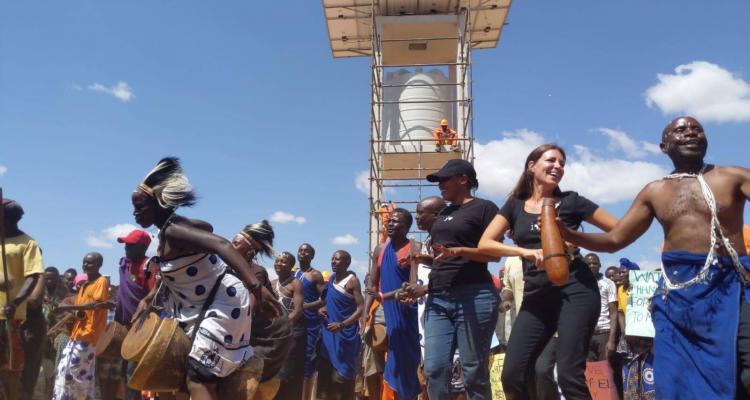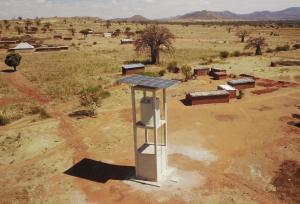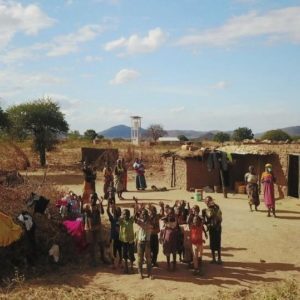
Innovation: Africa is helping to bring new life to Mandela Village’s 4,700 inhabitants with clean running water for the first time. The result is a stream of new opportunities.

As part of their on-going project implementation across the African continent, Innovation: Africa recently installed a solar water pumping system at Mandela Village in Tanzania. Two water towers were constructed and 12 taps were built throughout the village bringing clean running water for the first time to the village’s 4,700 people, and a cattle trough for livestock.
Aside from the social impact of clean running water, the installation has also created local jobs. Only local Tanzanian contractors were used and 10 members of the village were trained and upskilled in construction, a skill that they can use for life. Security guards and pump attendants have been hired from within the community to supervise the project. Now that water is readily available, community members are involved in many long-term initiatives such as brickmaking, building gardens and selling produce that brings in added streams of income.
“The potential that is unleashed when we are able to turn on the taps and provide clean water to rural communities can create ripple effects that are life changing,” says Sivan Ya’ari, Founder and CEO of Innovation: Africa. Access to clean water is a basic human right, but according to the World Economic Forum one in four people do not have access to safe drinking water – predominantly in sub-Saharan Africa. A lack of water access is not only detrimental in terms of sanitation, it also means no farming and agriculture for food, it means health centres become high risk areas for infection, it means children cannot attend school without much higher risks of disease and contaminiation.

A lack of access to safe water also affects our physical wellbeing, the safety and security of women and children who have no choice but to carry heavy vessels for long distances even into the night. It creates social disparity as breadwinners often cannot work because they are searching for water. This invariably causes conflict within communities.
But, there is hope. The sun is the most cost efficient source of energy available. Just a few solar panels are enough to power a solar pump that can provide clean water to an entire community – for some it is the first clean water they’ve had access to in their lives.
“The link between energy, water and food security is especially evident in many economically challenged African villages. Just a few solar panels can mean a solar-powered water supply, which in turn means irrigation for reliable and sustainable crop production. The knock-on effect leads to increased income generation meaning more economic development and opportunities which benefits all,” concludes Ya’ari.













